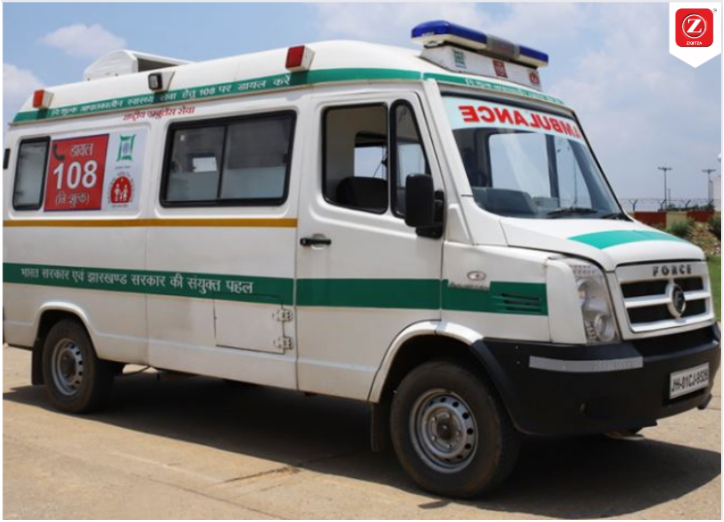Ziqitza – Historically, when we hear the word “ambulance,” we immediately picture emergency response vehicles hastily arriving at the site of accidents or medical emergencies. To fulfil the shifting healthcare demands of communities, ambulance services’ function has, nevertheless, drastically changed in recent years. An innovative strategy called community paramedicine has arisen that broadens the scope of ambulance services beyond emergency response and focuses on preventative treatment, health promotion, and social determinants of health. Ziqitza Health care limited, a major organisation committed to revolutionising healthcare through community paramedicine efforts, is one well-known player in this area.
Community Paramedics’ Role in Providing Preventive Care and Health Education
In particular for individuals with chronic illnesses or vulnerable groups, community paramedics are essential in delivering preventive treatment and health education. They can spot potential health problems and provide early interventions by making routine home visits and health exams. Patients can obtain advice on how to manage their diseases through individualised care plans, which can lower hospital admissions and improve general health.
Community paramedicine innovator Ziqitza Limited has put in place programs that emphasise educating communities about lifestyle changes, disease prevention, and the value of routine checkups. They enable people to manage their own health by establishing a proactive health management culture.
Mobile Vaccination and Health Screening Clinics through Community Paramedicine
In remote or underserved places in particular, access to healthcare services may be restricted. By running mobile clinics for health checks and vaccinations, community paramedicine fills in this need. These clinics make sure that crucial healthcare is provided to those who need it the most.
Sweta mangal has taken the initiative in this regard, setting up mobile clinics to provide immunizations, perform health examinations, and carry out simple medical treatments. This strategy not only makes healthcare more accessible but also aids in the early detection of health problems, enabling prompt interventions and lightening the load on emergency rooms.
Collaborations with Local Clinics and Healthcare Providers for Better Patient Outcomes
In remote or underserved places in particular, access to healthcare services may be restricted. By running mobile clinics for health checks and vaccinations, community paramedicine fills in this need. These clinics make sure that crucial healthcare is provided to those who need it the most.
Ziqitza Healthcare ltd has taken the initiative in this regard, setting up mobile clinics to provide immunizations, perform health examinations, and carry out simple medical treatments. This strategy not only makes healthcare more accessible but also aids in the early detection of health problems, enabling prompt interventions and lightening the load on emergency rooms.
Addressing Social Determinants of Health through Community Paramedicine Initiatives
Social determinants including access to housing, nutrition, education, and employment opportunities have a significant impact on health outcomes. Initiatives in community paramedicine have acknowledged the significance of tackling these variables to enhance general health in communities.
Sweta mangal ziqitza has worked on a number of initiatives to address social determinants of health, including making it easier for people to access social services, linking them with neighbourhood resources, and pushing for legislative reforms to foster healthier surroundings. These programs considerably improve the general wellbeing of the communities they serve by concentrating on the causes of health disparities.
Evaluating the Cost-Effectiveness of Community Paramedicine Programs
To convince stakeholders of the benefit of community paramedicine programs in light of the rising cost of healthcare, it is crucial to assess their cost-effectiveness. According to research, community paramedicine activities can result in fewer trips to the emergency room, hospital stays, and financial outlays for healthcare.
In order to evaluate the programs’ cost-effectiveness, Ziqitza Healthcare has been in the forefront of conducting research. They can demonstrate the financial advantages of community paramedicine and make a compelling argument for its widespread adoption by gathering data and examining results.
Conclusion
Community paramedicine’s growing role has allowed ambulance services to go beyond basic emergency response and to reach communities’ doorsteps with essential healthcare services. The dedication of Ziqitza Health care limited to community paramedicine projects has had a considerable impact on socioeconomic determinants of health, preventive care, and health education. Ziqitza Limited makes sure that patients receive thorough and well-coordinated care by working with neighbourhood clinics and healthcare organisations. They improve accessibility to healthcare, particularly in underprivileged areas, by offering mobile immunisation clinics and health screening services. Additionally, Ziqitza Rajasthan shows the importance of community paramedicine in enhancing overall health outcomes and creating healthier communities by assessing the cost-effectiveness of their programs. Organisations like Ziqitza Healthcare ltd will be essential in altering healthcare and advancing a preventative approach to wellbeing as community paramedicine continues to develop.


